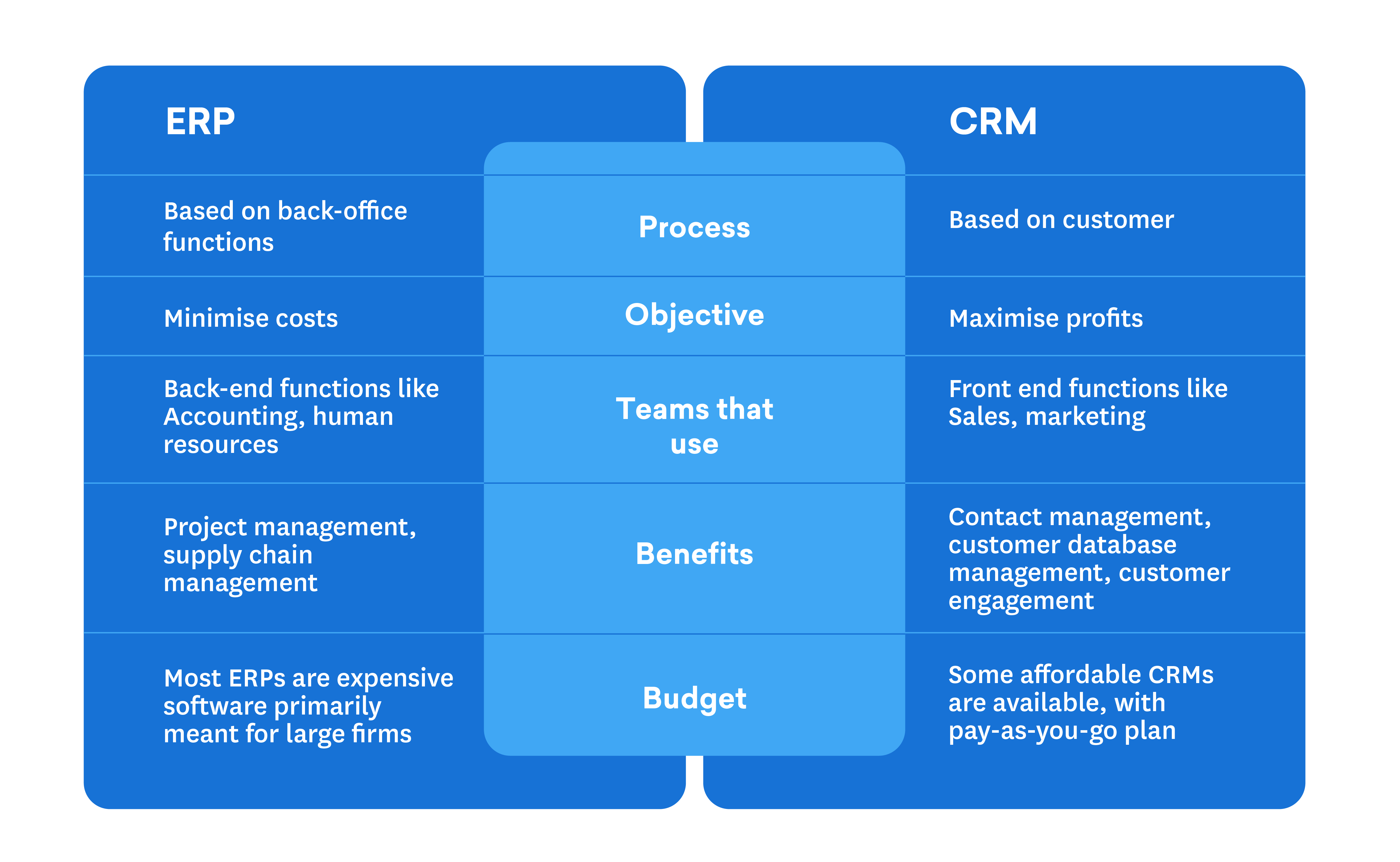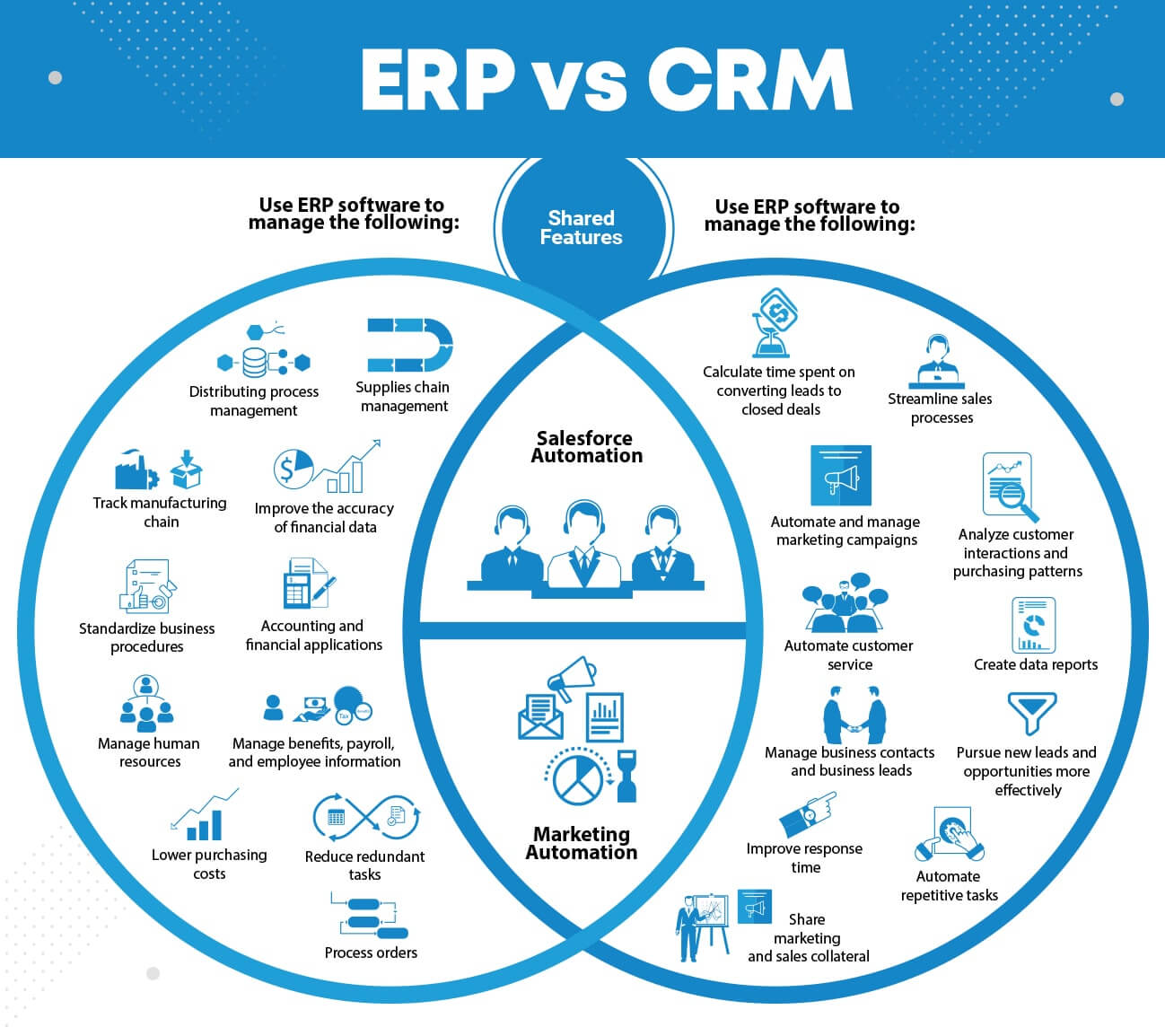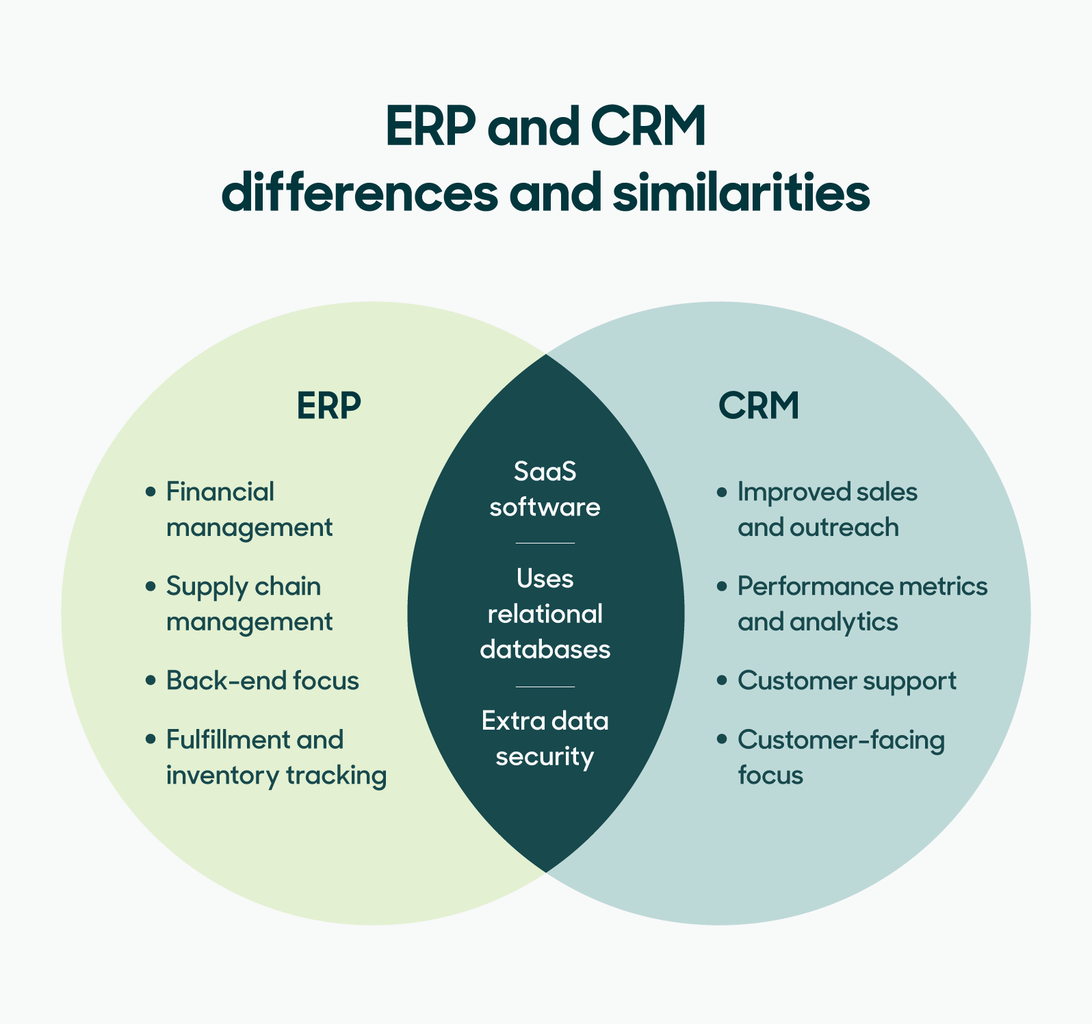ERP y CRM are two of the most important software systems for businesses of all sizes. ERP (Enterprise Resource Planning) systems help businesses manage their day-to-day operations, while CRM (Customer Relationship Management) systems help businesses manage their relationships with customers.
Together, ERP and CRM systems can provide businesses with a complete view of their operations and customers, which can lead to improved efficiency, profitability, and customer satisfaction.
In this guide, we will provide an overview of ERP and CRM systems, discuss the benefits of integrating ERP and CRM, and provide guidelines for implementing ERP and CRM systems in your business.
Key Concepts

In the realm of business management, two essential software systems stand out: Enterprise Resource Planning (ERP) and Customer Relationship Management (CRM). These systems play pivotal roles in optimizing business operations and fostering customer relationships.
ERP systems serve as the backbone of a company’s operations, integrating and managing core business processes across multiple departments. CRM systems, on the other hand, focus on managing customer interactions, providing a comprehensive view of customer relationships.
ERP (Enterprise Resource Planning)
ERP systems are comprehensive software solutions that integrate various business functions into a single platform. They provide a centralized repository for data, allowing different departments to access and share information in real-time.
ERP systems typically include modules for:
- Financial management
- Human resources
- Supply chain management
- Manufacturing
- Project management
CRM (Customer Relationship Management)
CRM systems are designed to manage interactions with customers throughout their lifecycle. They provide a centralized platform for tracking customer data, managing sales pipelines, and providing customer support.
CRM systems typically include features for:
- Contact management
- Sales tracking
- Customer service
- Marketing automation
- Analytics and reporting
Relationship between ERP and CRM
ERP and CRM are two essential software systems for businesses of all sizes. ERP (Enterprise Resource Planning) systems manage the core business processes of an organization, such as finance, accounting, manufacturing, and supply chain management. CRM (Customer Relationship Management) systems manage interactions with customers, including sales, marketing, and customer service.While ERP and CRM systems are often used separately, they can be integrated to provide a number of benefits.
When ERP and CRM systems are integrated, they can share data, which can improve the efficiency and effectiveness of both systems. For example, an ERP system can share customer data with a CRM system, which can help the CRM system to track customer interactions and provide better customer service.
Benefits of Integrating ERP and CRM
There are many benefits to integrating ERP and CRM systems. Some of the most common benefits include:
- Improved customer service: When ERP and CRM systems are integrated, customer data can be shared between the two systems, which can help to improve customer service. For example, a customer service representative can access a customer’s account information in the ERP system to see their purchase history and other relevant information.
- Increased sales: When ERP and CRM systems are integrated, sales teams can have access to more customer data, which can help them to close more deals. For example, a sales representative can use the CRM system to track customer interactions and identify opportunities to upsell or cross-sell products or services.
- Reduced costs: When ERP and CRM systems are integrated, businesses can reduce costs by eliminating duplicate data entry and streamlining processes. For example, a business can use the ERP system to create sales orders, which can then be automatically transferred to the CRM system for tracking and fulfillment.
Features of ERP and CRM
ERP and CRM systems offer a range of features to streamline business processes and enhance customer interactions. Let’s explore the key features of each:
ERP Features
- Integrated Database:ERP systems consolidate data from various departments into a centralized database, providing a single source of truth.
- Automated Workflows:ERP automates routine tasks, such as order processing, inventory management, and financial transactions, improving efficiency.
- Real-time Data:ERP systems provide real-time data visibility across the organization, enabling informed decision-making.
- Scalability:ERP systems can be scaled to meet the growing needs of businesses, supporting expansion and diversification.
- Industry-Specific Functionality:ERP systems often offer industry-specific modules tailored to the unique requirements of different sectors.
CRM Features
- Customer Data Management:CRM systems centralize customer information, including contact details, purchase history, and interactions.
- Sales Automation:CRM automates sales processes, such as lead management, opportunity tracking, and proposal generation.
- Marketing Automation:CRM integrates with marketing tools to automate campaigns, track customer behavior, and nurture leads.
- Customer Service Management:CRM provides a platform for managing customer inquiries, resolving issues, and tracking customer satisfaction.
- Analytics and Reporting:CRM systems offer analytics and reporting capabilities to gain insights into customer behavior, sales performance, and marketing effectiveness.
Implementation Considerations: Erp Y Crm
Implementing ERP and CRM systems requires careful planning and execution. Here are some guidelines to ensure a successful implementation:
ERP Implementation Guidelines
- Define clear project goals and objectives.
- Involve all stakeholders in the planning and implementation process.
- Select an ERP system that aligns with your business needs and industry.
- Implement the system in phases to minimize disruption.
- Provide adequate training to users.
CRM Implementation Guidelines
- Identify the specific business processes that the CRM system will support.
- Choose a CRM system that offers the necessary features and functionality.
- Integrate the CRM system with other business systems, such as ERP and marketing automation.
- Develop a data migration plan to ensure that customer data is transferred accurately.
- Train users on the CRM system and provide ongoing support.
Industry Use Cases

ERP and CRM systems are widely used in various industries, including:
- Manufacturing
- Retail
- Healthcare
- Financial Services
- Technology
In manufacturing, ERP systems help manage production processes, inventory, and supply chain operations. CRM systems help manage customer relationships, sales, and marketing activities. By integrating these systems, manufacturers can gain a complete view of their operations and improve efficiency and profitability.
Retail
In retail, ERP systems help manage inventory, sales, and distribution operations. CRM systems help manage customer relationships, loyalty programs, and marketing campaigns. By integrating these systems, retailers can gain a complete view of their customers and improve the shopping experience.
Healthcare
In healthcare, ERP systems help manage patient records, billing, and insurance processing. CRM systems help manage patient relationships, appointments, and marketing campaigns. By integrating these systems, healthcare providers can improve patient care and reduce costs.
Financial Services
In financial services, ERP systems help manage financial transactions, accounting, and compliance. CRM systems help manage customer relationships, sales, and marketing activities. By integrating these systems, financial institutions can gain a complete view of their customers and improve profitability.
Technology
In technology, ERP systems help manage product development, manufacturing, and supply chain operations. CRM systems help manage customer relationships, sales, and marketing activities. By integrating these systems, technology companies can gain a complete view of their operations and improve efficiency and profitability.
Future Trends

The future of ERP and CRM is bright, with several emerging trends poised to impact businesses in the coming years.
One key trend is the continued rise of cloud-based ERP and CRM systems. Cloud-based systems offer several advantages over on-premise systems, including lower upfront costs, increased flexibility, and easier scalability.
Artificial Intelligence
Another major trend is the increasing use of artificial intelligence (AI) in ERP and CRM systems. AI can be used to automate tasks, improve decision-making, and provide personalized experiences for customers.
Integration, Erp y crm
Finally, we can expect to see continued integration between ERP and CRM systems. This integration will allow businesses to have a more complete view of their customers and operations, and to make better decisions about how to serve them.
End of Discussion
ERP and CRM systems are essential for businesses of all sizes. By integrating ERP and CRM systems, businesses can gain a complete view of their operations and customers, which can lead to improved efficiency, profitability, and customer satisfaction. If you are not already using ERP and CRM systems, we encourage you to consider implementing them in your business.